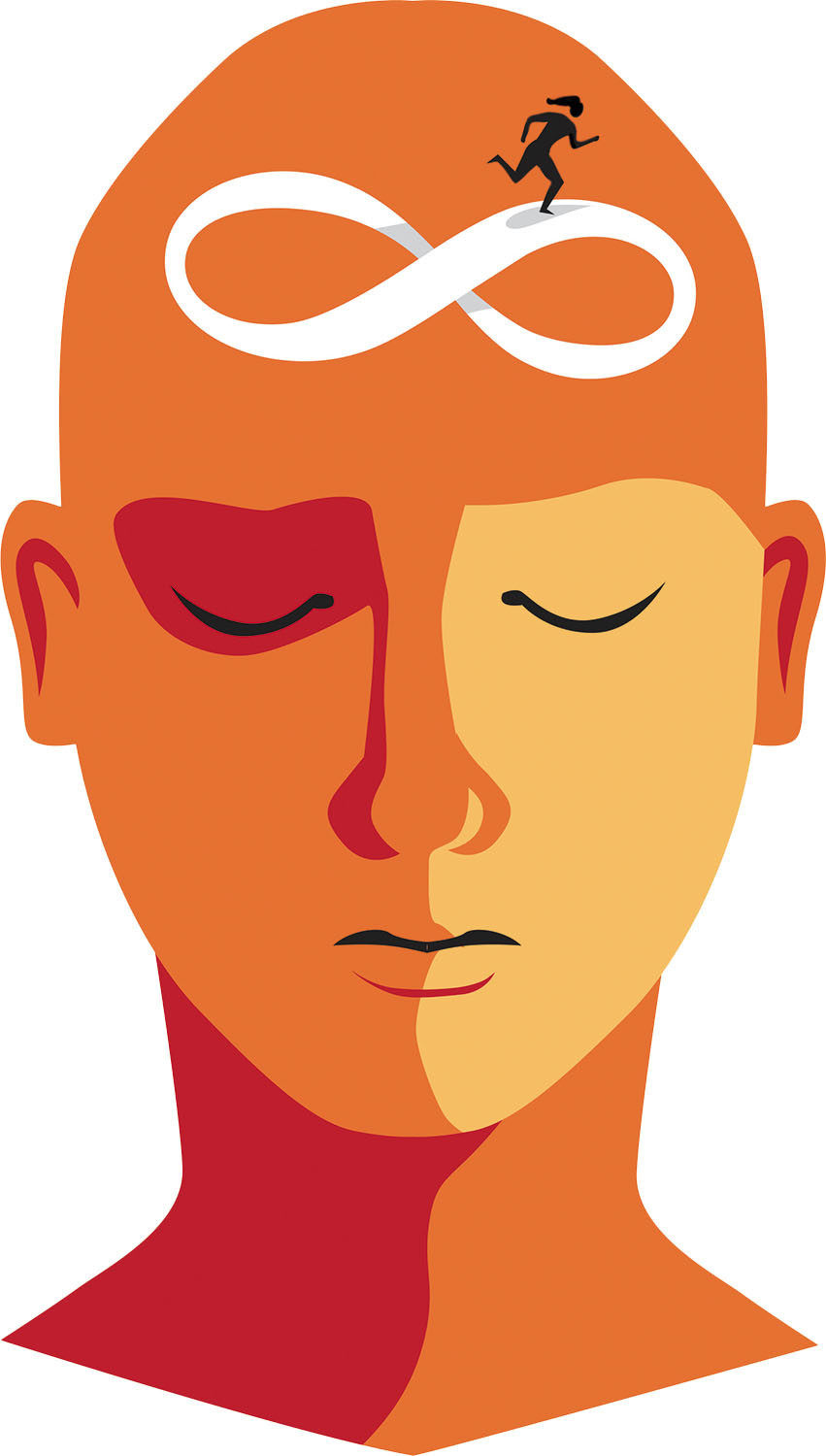
What are somatic workouts?

How to curb your stress eating

How to spot Parkinson’s disease symptoms

8 simple ways to reduce ultra-processed foods in your diet

Heart failure symptoms in women: How they’re different

GERD diet: Foods to avoid to reduce acid reflux

Strong is the new skinny

Everyday habits that sneakily weaken your bones

Don’t wait to get help for back pain

Correcting how you walk may ease osteoarthritis knee pain
Mental Health Archive
Articles
10 habits for good health
The foundation of a healthy lifestyle consists of lasting habits like eating right, maintaining a healthy weight, exercising regularly, managing mental health, and getting routine medical and wellness exams. Even making daily, small steps toward these goals can have a significant impact. Everyday strategies include doing morning stretching, taking regular naps, breathing exercises to manage stress, caring for skin and teeth, and being social.
Combining electronic cigarettes and counseling helps more smokers quit
Smokers were more successful at quitting when they used both electronic cigarettes and smoking-cessation counseling rather than only relying on counseling, according to a 2024 study.
Certain exercises may offer effective treatment for depression
In a 2024 study, researchers found the most effective exercises for treating depression were walking, running, yoga, strength training, and dancing. When exercise was combined with talk therapy, then yoga, tai chi, and aerobic exercise stood out.
How do trees and green spaces enhance our health?
Trees enhance our lives by releasing oxygen, reducing pollution, and preventing flooding. Beyond all of these benefits, there is growing evidence that just being around trees and green spaces improves mood and overall health.
Afraid to visit the doctor?
Medical anxiety is a fear of doctors and medical settings. Nearly half of American adults in 2023 reported feeling anxious before a doctor's appointment, and four in 10 said their anxiety compels them to put off seeing a doctor. Medical anxiety can stop people from seeking preventive care or necessary treatments, jeopardizing their health. People with medical anxiety may be fearful of needles or shots, a painful test or procedure, or receiving bad news or a serious diagnosis.
How to recognize the signs of mental health issues
A 2023 study showed that about 50% of people will develop at least one mental disorder by age 75. Older adults are vulnerable to mental disorders because they are exposed to many life-changing and traumatic events like health issues, the death of loved ones, and physical limitations. Among men, the most common disorders were depression, phobias, and alcohol use disorder. Identifying the signs and symptoms of these disorders can help men seek appropriate medical treatment.
The wide-ranging effects of psoriasis
Psoriasis causes skin cells to multiply far faster than normal, leading to scaly, itchy, painful skin plaques. While treatments have vastly expanded, stigma surrounding psoriasis persists. Skin lesions can affect what people wear, what they do, and how they relate to others. To better cope, people with psoriasis can get family members involved in care and treatment decisions, see a dermatologist for more advanced therapies, revisit which treatments may work for them, and connect with others with the disease.
Managing intrusive thoughts
Intrusive thoughts are unwanted thoughts or mental images that make people feel uncomfortable. They're common, affecting some six million Americans and can be effectively managed using tools such as cognitive behavioral therapy. They can be associated with mental health disorders such as obsessive-compulsive disorder or post-traumatic stress disorder, but many people who experience them don't meet the criteria for a mental health disorder. The thoughts may be triggered by stress or anxiety.
Ever worry about your gambling?
Recent changes in laws have made gambling widely accessible and popular. Uncontrolled gambling can have many kinds of consequences, some quite serious. A simple screening test for problem gambling and knowing the range of available resources can help people ward off the worst of these issues.
Not just good for the soul
Forgiveness is defined by replacing ill will toward an offender with goodwill. A 2023 study suggests forgiveness boosts mental health by reducing depression and anxiety levels. Other evidence suggests physical benefits as well. Studies indicate forgiveness also eases stress, improves sleep, and lowers blood pressure and heart rate. Being unable to forgive can raise blood pressure, which can affect overall heart health. Some people are innately better at forgiving, but Harvard experts say all people can learn skills that help them forgive.

What are somatic workouts?

How to curb your stress eating

How to spot Parkinson’s disease symptoms

8 simple ways to reduce ultra-processed foods in your diet

Heart failure symptoms in women: How they’re different

GERD diet: Foods to avoid to reduce acid reflux

Strong is the new skinny

Everyday habits that sneakily weaken your bones

Don’t wait to get help for back pain

Correcting how you walk may ease osteoarthritis knee pain
Free Healthbeat Signup
Get the latest in health news delivered to your inbox!
Sign Up











